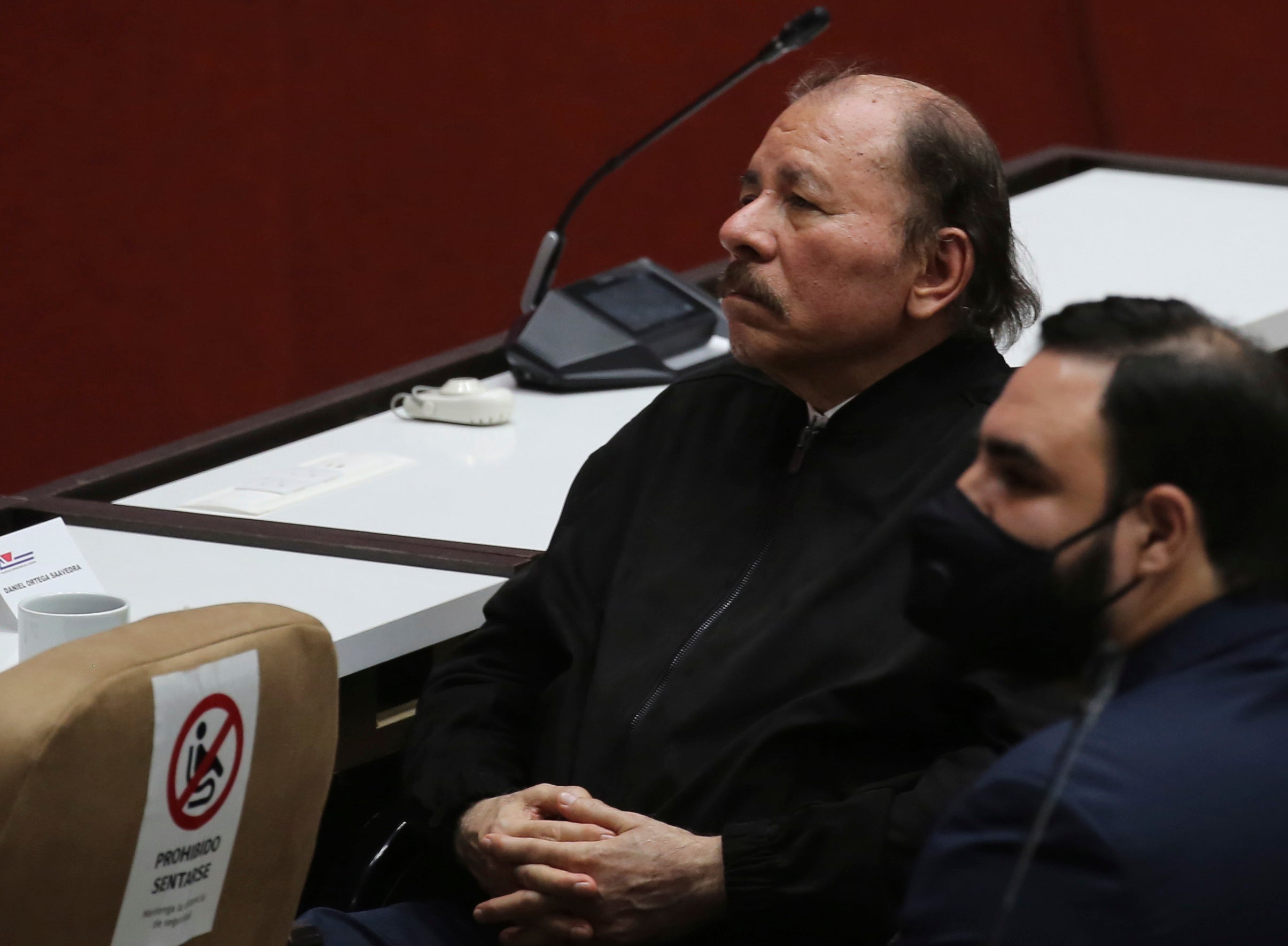Nicaragua's ruling party hopes to expand in local elections
It's been an electoral campaign without rallies, demonstrations or even real opposition

Your support helps us to tell the story
From reproductive rights to climate change to Big Tech, The Independent is on the ground when the story is developing. Whether it's investigating the financials of Elon Musk's pro-Trump PAC or producing our latest documentary, 'The A Word', which shines a light on the American women fighting for reproductive rights, we know how important it is to parse out the facts from the messaging.
At such a critical moment in US history, we need reporters on the ground. Your donation allows us to keep sending journalists to speak to both sides of the story.
The Independent is trusted by Americans across the entire political spectrum. And unlike many other quality news outlets, we choose not to lock Americans out of our reporting and analysis with paywalls. We believe quality journalism should be available to everyone, paid for by those who can afford it.
Your support makes all the difference.After an electoral campaign without rallies, demonstrations or even real opposition, Nicaragua’s governing party qs hoping to expand Sunday on the 141 of Nicaragua’s 153 municipalities that it already controls.
President Daniel Ortega’s Sandinista National Liberation Front is so dominant it is approaching single-party status in Nicaragua. In the past two years, some opposition parties have been cancelled altogether and their candidates jailed. In July, police ousted five opposition mayors who belonged to a party disbanded by electoral authorities and replaced them with allies.
The Inter-American Commission on Human Rights expressed concern Friday that “the minimum conditions necessary” to hold free and fair elections do not exist in Nicaragua. It called on the government to reestablish democratic guarantees and stop the repression.
The government has shuttered some 2,000 nongovernmental organizations and more than 50 media outlets as it cracked down on voices of dissent. Some 100 other civil society organizations were closed Friday, the government announced. The pace of the crackdown has increased since the run-up to national elections last year in which Ortega won a fourth consecutive term,
The level of mistrust in the elections and available candidates is such that “people don’t even talk about the elections,” said an accountant who works in Managua and requested anonymity to avoid reprisals.
He said he hadn’t seen candidates caravanning around the city in the usual fashion or even banners advertising candidacies.
According to the Supreme Electoral Council, 153 mayors, as well as vice mayors and thousands of municipal council members, will be elected Sunday. At least 3.7 million Nicaraguans are eligible to vote.
The governing Sandinistas lead an alliance made up of eight parties, as well as Indigenous and religious movements supportive of the ruling party called “United Nicaragua Triumphs.”
In the capital, Sandinista Mayor Reyna Rueda, a close confidant of first lady and Vice President Rosario Murillo, is seeking reelection. She will face a candidate from the Liberal Constitutionalist Party, which is not part of the Sandinista alliance, but is dismissed by many in the opposition as a collaborator helping to create a facade of opposition.
Opposition groups have denounced irregularities ahead of the vote, among them the disappearance of more than 755,000 names from voter rolls without any explanation.
At the same time, the government decreed that people with expired identification documents will be allowed to vote.
A citizen observation group called Urnas Abiertas, or Open Ballot Boxes, said it had documented more than 700 instances of political violence, including targeted harassment and threats toward candidates or known opposition figures this year. It also said it knew of six arrests of opposition members in the past week.
A group of 13 opposition organizations in exile said in a statement Thursday that the election was a “farce” and just an effort by the government to install “an absolute dictatorial and single party regime.”
The Inter-American Commission on Human Rights’ statement Friday said the government had excluded real opposition from these elections in a context of “government closure and co-optation of civic spaces and democratic participation.”